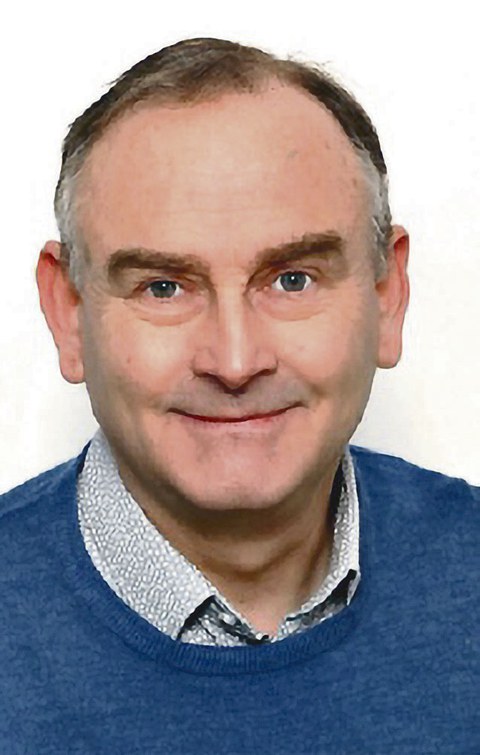Jun 08, 2021
TUD coordinates the EU-funded "SMARTI" project
TUD coordinates the EU-funded "SMARTI" project
The EU-funded SMARTI project aims to train teachers at several Russian and Armenian partner universities to teach in English. The TU Dresden coordinates the project under the leadership of Prof. Dr. Christian Prunitsch, Slavist as well as speaker of the Humanities and Social Sciences Department and Dean of the Faculty of Languages, Literature and Cultural Studies. Sven Riddell is a research assistant for Erasmus+ projects at TUD and now also for SMARTI. Mr Riddell says, "After the project start in January, we are currently determining what support the universities need from us and are already planning in parallel how we want to design the actual training."

Sven Riddell.
English is the language of international understanding. For this reason, universities that operate internationally and want to attract students from other countries often develop courses of study in English in addition to those in the national language. "EMI-HE" - "English as Medium of Instruction in Higher Education" - is the technical term for this. "Internationalisation is promoted by English as the language of instruction," says Sven Riddell as well. The SMARTI project aims to make teachers at five Russian and six Armenian partner universities fit for teaching in English. Riddell assists with this coordination. His position is called "Research Assistant for Erasmus+ Projects at the Teaching Centre for Languages and Cultures at the TUD". Sven Riddell's biography helps him a lot in terms of internationality: he grew up in Scotland, later taught German, his mother's language, in England and English, his father's language, in other countries. In the 1990s, he came to East Germany to teach English. "I knew that there was a certain amount of catching up to do," he says, explaining this step. At the TUD, he used to teach at the Centre for Technical Languages and now at TUDIAS. With SMARTI, whose project leader is Riddell's Irish colleague Gerald Cullen, he is now again providing start-up help with the English language. SMARTI stands for "Support for Innovative Methodology, Approaches and Tools for Teaching through the Medium of English in order to improve Educational Yield, Sustainability and Internationalization."
The project started in January and will run for three years. The EU has granted one million euros through the Erasmus+ programme for the promotion of education, training, sport and youth in Europe. The European Project Center (EPC) administers the funds on behalf of the coordinating institution TUD and distributes them to the fifteen partners of the project. In addition to the Russian and Armenian universities, whose teachers are to be trained, these include Liverpool John Moores University in the United Kingdom and the Technical University of Riga in Latvia. These provide know-how, but are also to benefit from future findings from the project. The money will be spent on travel expenses and teaching materials, among other things. Sven Riddell's project position is also financed through this. He organises meetings, provides the partners with information, takes minutes and will also prepare performance records in the future. "We are currently determining what training needs our Russian and Armenian partners have. This will take until about September. In parallel, we are already beginning to design targeted support opportunities, both for teachers who are already teaching and for teachers who are still in training," Riddell tells us. For the selection of the Russian and Armenian partners, such as the Ogarev Mordovia State University in Russia and the Goris State University in Armenia, the TUD made use of already existing contacts. Since the three-year project phase can only be a start-up phase and the term "sustainability" is used in the project name, the long-term aim is to develop a multiplier model. An EMI centre for English-language teaching is to be set up at each university. A number of teachers are being trained to act as contact persons and pass on their knowledge. The costs for rooms and equipment are covered by the programme. Each EMI-Centre is to develop its own curriculum for training staff. It will be supported in this by the experienced project partners. "At the end, the individual universities will compile the collected expertise on English-language teaching in a handbook," comments Sven Riddell. He is helping to get a website for the SMARTI project running, and to publicise the project, also by means of social media.
Of course, the Russian and Armenian partner universities already have concrete plans for how they can benefit from the project. Olga Safonkina, PhD, from Mordovia State University, describes these for her university as follows: "We have a Master's programme called 'Management of energy flows of small-scale power objects', which includes a double degree for Russian and Chinese students. We want to expand this. With SMARTI, we hope to be able to decisively improve the level of English-language teaching of the content. In the process, we also expect to expand research opportunities for both groups."
B. D.
Complete project summary including all project partners:
SMARTI project summary (PDF, englisch)
https://smarti-erasmus.eu
Information about the Erasmus+ programme at TU Dresden:
https://tu-dresden.de/kooperation/internationales/AcademicExchange/erasmus-plus



